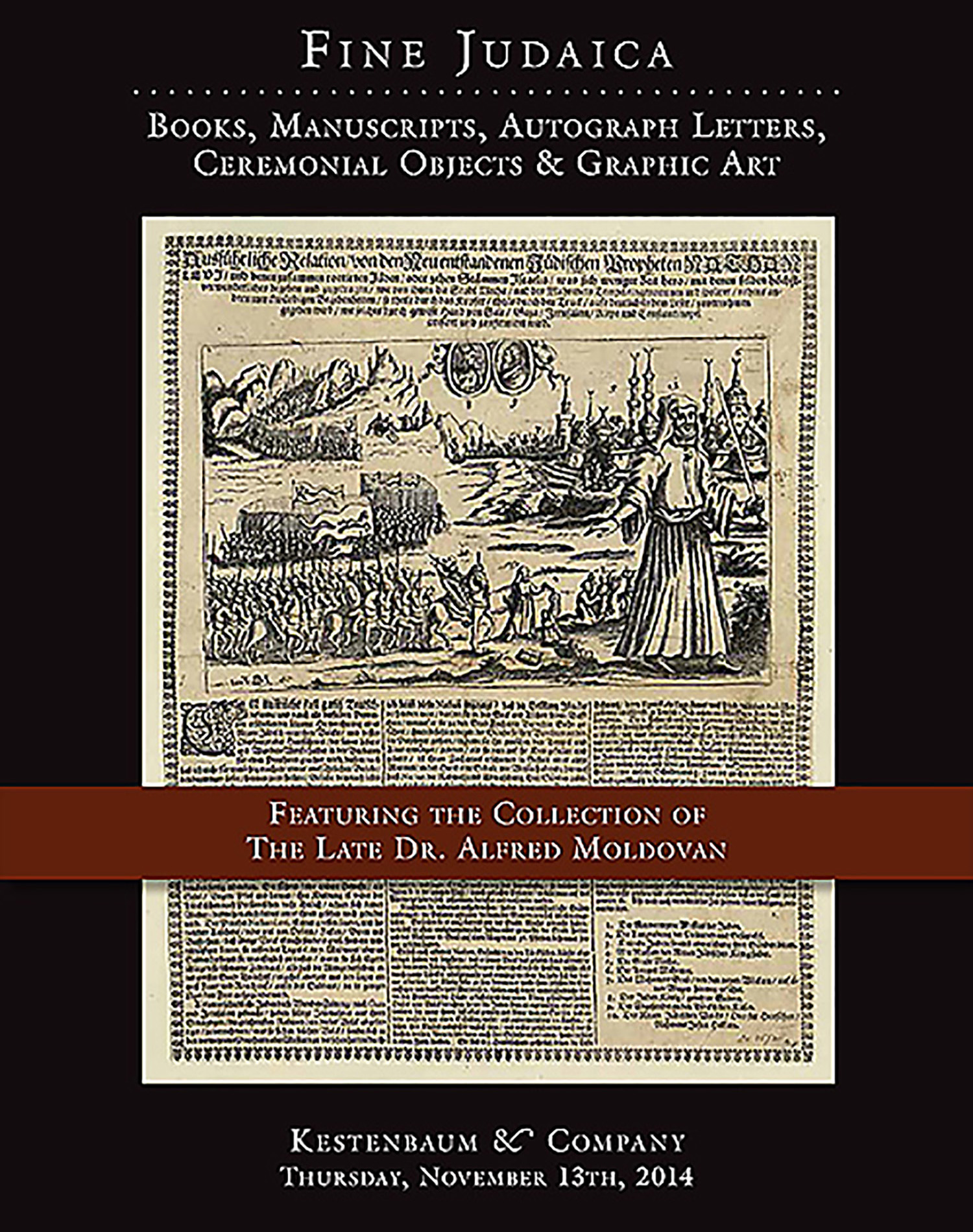Megilath Eivah.

AUCTION 63 |
Thursday, November 13th,
2014 at 1:00
Fine Judaica: Books, Manuscripts, Autograph Letters, Graphic and Ceremonial Art
Lot 127
HELLER, YOM TOV LIPMANN.
Megilath Eivah.
Breslau: Hirsch Sulzbach 1837
Est: $1,000 - $1,500
PRICE REALIZED $6,500
Bavarian born Rabbi Yom Tov Lipmann Heller is more commonly known as the ‘Tosfos Yom Tov’ after his major commentary to the Mishnah. In his youth he studied in Prague with both Rabbi Yehudah Loewe (the Maharal) and Rabbi Ephraim Luntschytz (the Kli Yakar) and already by aged 19 was asked to sit on the Maharal’s Judicial Court. By 1627 he was appointed Chief Rabbi of Prague.
As a result of the Thirty Years’ War (1618-48), the Jews of Bohemia were heavily taxed. As Chief Rabbi, Rabbi Heller decided that the wealthier members of the Jewish community should shoulder a larger share of the financial burden. Unappreciative of Rabbi Heller’s economics, certain wealthy Jews joined forces with government and Church officials to punish the rabbi. In the summer of 1629, he was arrested by the Imperial Court of the Holy Roman Emperor, Ferdinand II, and charged with insulting Christianity. The death sentence was issued upon Rabbi Heller and an order of expulsion upon the entire community. After much lobbying, the Emperor commuted the sentence to forty days imprisonment in Vienna, along with a heavy fine. (The order of expulsion of the Jewish Community was rescinded). Furthermore, Rabbi Heller was forced to relinquish his rabbinical position in Prague.
A description of the entire ordeal - trial, verdict and incarceration - is told in the present work “Megilath Eivah” - a play on words referencing ‘Megilath Eichah’ of Tisha B’Av. Indeed R. Heller decreed a fast day for his descendants on the anniversary of his imprisonment (5th Tammuz). He also established an annual celebration (1st Adar) on the day he won back his freedom and status following his nomination to the Cracow Rabbinate which centuries later, his numerous descendants still commemorate.
